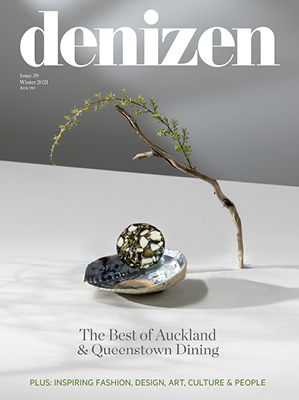While indoor plants are a timeless interior accessory, there’s far more to these leafy fellows than meets the eye. The plants you choose can seriously benefit your wellbeing in a multitude of ways when placed in a particular room or space — from being all-natural sleep inducers in the bedroom to offering a helping hand in the kitchen. We’ve hunted down the perfect plant for every room in the house so you create your own indoor oasis.
Bedroom: Lavender
Who doesn’t love the smell of lavender? Beyond being a beautiful, ornamental addition to the bedroom, placing a flowering lavender plant in there also results in better sleep, boosted moods and reduced anxiety. There are a truckload of pillow sprays, essential oils and sleep masks on the market that are created with a quality night’s shut-eye in mind, but nothing compares to the real thing.
Bathroom: Aloe Vera
An absolute wonder plant, Aloe Vera is a multifaceted miracle of nature that couldn’t be more suited to the bathroom. Serving as a first aid kit, (its antibacterial and antioxidant properties lend themselves to anything from mosquito bites to burns), a moisturiser, a lip balm, and even as an all-natural mouthwash, a potted Aloe plant might just be the most beneficial botanical there is — plus, it’s thick, rubbery, short-stemmed leaves create an ideal sink-side decoration.
Kitchen: Mint
Any plant in the kitchen shoud be part of a herb garden, the more edible the better, we think. Begin your collection with a mint potted plant — fitting in right at home on your sun-drenched kitchen windowsill, a mint plant not only makes a cute interior addition but it also serves as a helping hand to all your culinary needs, (read: mojitos) all while filling the air with a subtle, refreshing aroma. Wanting to grow the family? Add more potted plants filled with basil, coriander and rosemary to give the mint some company.
Office/Study: Spider plant
Not only can plants help purify and humidify the air, but they can also boost brain power. A 2005 study at the Royal College of Agriculture in Cirencester, England, found that students demonstrated 70 percent greater attentiveness when taught in a room containing plants, whereas a worldwide 2011 study found that houseplants in an office setting can both prevent fatigue and improve your attention span. A spider plant’s grass-like foliage serves as a mature, attractive office accent. We see a promotion on the horizon.
Dining room: Orchid
A vibrant, purple orchid flower not only makes a lively table arrangement — serving as a serious conversation starter for when you’re entertaining — but its subtle, sweet aroma has also been known to trigger a positive change in people’s emotions. The best part? Orchids are seriously low-maintenance, in fact overwatering is the most common way to kill them, so if you forget to show them some love for a week or three, they’ll still be blooming beautifully as your table centrepiece.
Living Room: The Fiddle-Leaf Fig
The bigger and leafier the plant, the better it is for clearing the air — perfect for the room in which you spend most of your time. The fiddle-leaf fig, aka Ficus lyrata, is a bigger plant that stretches out its large, violin-shaped leaves to serve as the perfect ornamental accent in the corner of a living space. It will need a large pot, (one that ties in perfectly with your interior colour scheme, of course) and watering regularly.
Hallway: Lemongrass
While not technically a room per se, the hallway of your home shouldn’t be overlooked — it too needs a green touch. Lining the front hall of your home with a lemongrass plant or two gives far more than just interior aesthetics, the strong scent that emanates from the leaves also serves as a serious pest deterrent, meaning that any unwelcome crawlies should stay firmly on the other side of the door.









